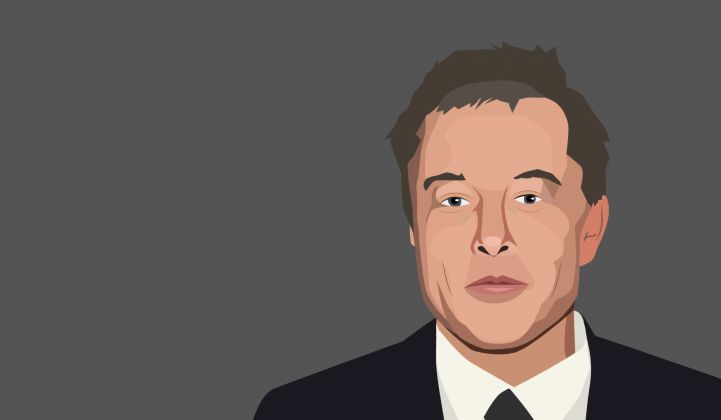The Securities and Exchange Commission filed court documents Thursday charging Tesla CEO Elon Musk with fraud over "false and misleading statements" on taking the company private.
"The chairman and CEO of a public company has important responsibilities to shareholders," said Stephanie Avakian, co-director of the U.S. Securities and Exchange Commission’s Division of Enforcement, at a press briefing. "Those responsibilities include the need to be scrupulous and careful about the truth and accuracy of statements made to the investing public."
"Neither celebrity status nor reputation as a technological innovator provide an exemption from the federal securities laws," she said.
The complaint seeks a finding that Musk committed securities fraud, an injunction prohibiting him from doing so in the future, civil penalties and return of any ill-gotten gains, and a bar on Musk serving as an officer or director of another public company in future.
“This unjustified action by the SEC leaves me deeply saddened and disappointed," Musk said in a statement, sent via Tesla's press team. "I have always taken action in the best interests of truth, transparency and investors. Integrity is the most important value in my life and the facts will show I never compromised this in any way.”
Sources tell CNBC that the company also expects to be sued. Tesla is not named as the defendant in the SEC complaint and officials refused to comment on matters beyond the complaint filed today.
On August 7, Musk tweeted that he was considering taking Tesla private at a price of $420 per share, and that funding had been "secured." The SEC filing notes the initial tweet was posted during trading hours, and that Musk went on to make the following statements via Twitter over the next three hours:
- My hope is *all* current investors remain with Tesla even if we’re private. Would create special purpose fund enabling anyone to stay with Tesla.”
- “Shareholders could either to [sic] sell at 420 or hold shares & go private.”
- “Investor support is confirmed. Only reason why this is not certain is that it’s contingent on a shareholder vote.”
"Musk knew or was reckless in not knowing that each of these statements was false and/or misleading because he did not have an adequate basis in fact for his assertions," the SEC filing states. "When he made these statements, Musk knew that he had never discussed a going-private transaction at $420 per share with any potential funding source, had done nothing to investigate whether it would be possible for all current investors to remain with Tesla as a private company via a 'special purpose fund,' and had not confirmed support of Tesla’s investors for a potential going-private transaction."
Tesla shares soared last month on the privatization news, up 6 percent from prior to the initial tweet, and closed up 10.98 percent from the previous day.
The SEC alleges Musk's tweets caused significant investor confusion. As evidence, the complaint notes that within minutes of the first tweet, the head of investor relations at Tesla texted Musk asking if the tweet was legitimate.
Nasdaq, which requires advance notice of market-moving information, suspended trading for 90 minutes after the tweet, having received no advance notice of the announcement.
Musk later sent a letter to employees stating that, as a public company, Tesla is subject to "wild swings in our stock price that can be a major distraction for everyone working at Tesla." Musk has repeatedly expressed frustration with short sellers.
On August 8, six of Tesla's eight board members backed the CEO, stating that he had opened a discussion with the board about taking the company private.
He later explained that he had been in discussions with the Saudi Arabian wealth fund for almost two years. Musk met with managers of the fund on July 31, but according to the SEC, the meeting "lacked discussion of even the most fundamental terms of a proposed going-private transaction." The lawsuit states:
For example, there was no discussion at the July 31 meeting of (1) any dollar amount or specific ownership percentage for the Fund’s investment in a going private transaction; (2) any acquisition premium to be offered to current Tesla shareholders; (3) any restrictions on foreign ownership of a significant stake in Tesla; (4) the Fund’s available liquid capital; (5) whether the Fund had any past experience participating in a going-private transaction; (6) any regulatory hurdles to completion of a going-private transaction; or (7) the board approval process necessary to take Tesla private. Musk has acknowledged that the July 31 meeting was the most specific discussion of a transaction to take Tesla private between him and representatives of the Fund.
The effort to take Tesla private was abandoned in late August. Six of Tesla’s directors released a statement expressing support for Musk and the need to focus on "ensuring Tesla’s operational success."
The SEC lawsuit was filed in the Southern District of New York.
At the time of publication, Tesla shares were down nearly 12 percent in after-hours trading.
Read a timeline of Tesla's privatization saga here.




